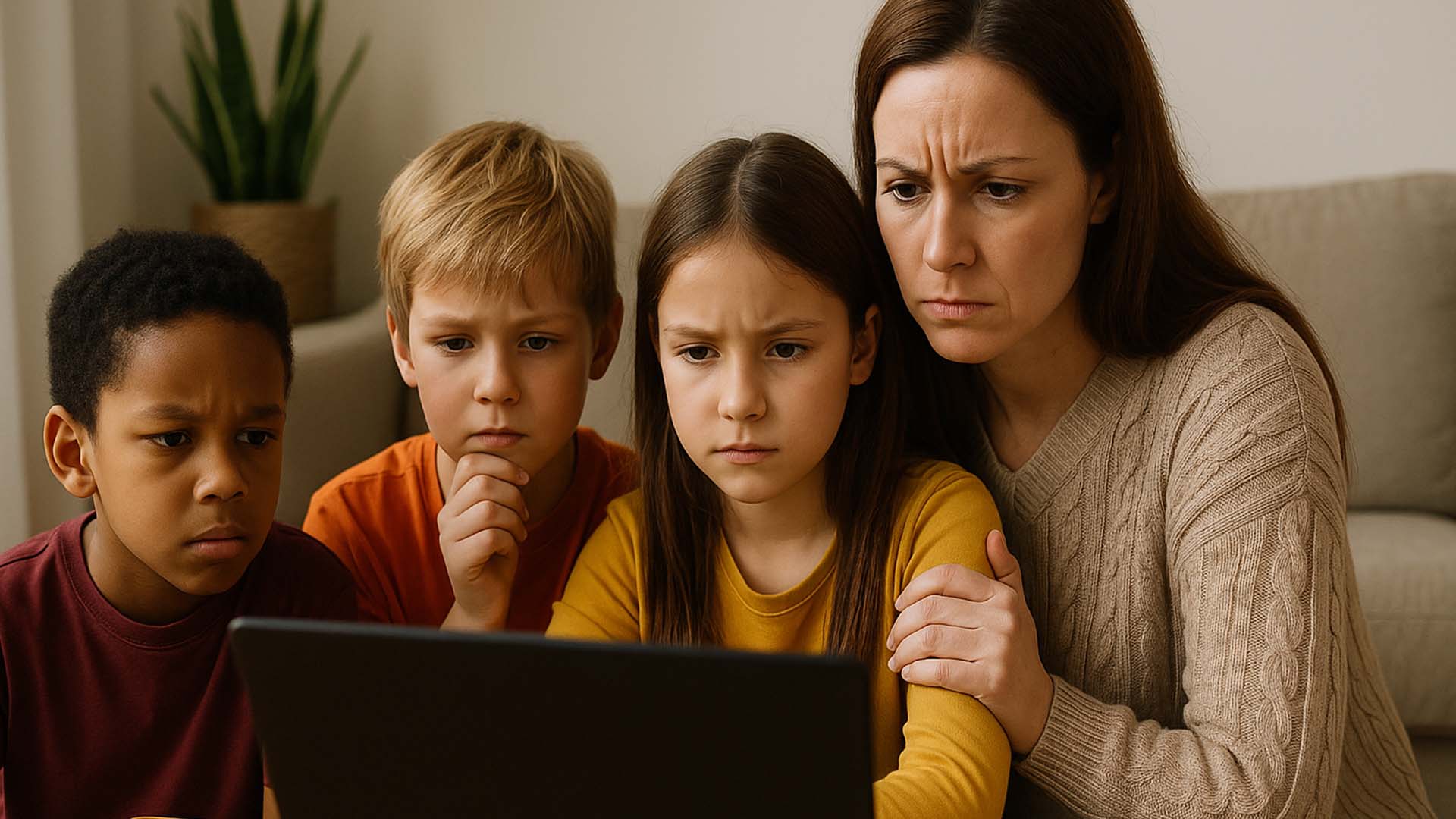The internet is a wonderful place filled with opportunities for learning, playing, and connecting with friends. However, just like the real world, it also has its share of dangers.
Internet safety for kids is all about understanding these risks and knowing how to navigate the online world responsibly and securely. It’s a team effort involving kids, parents, educators, and content creators to ensure a safe and positive online experience for everyone.
Understanding Online Risks
Being aware of potential dangers is the first step to staying safe online. Some common risks include:
•Inappropriate content: Websites or videos that are not suitable for children.
•Cyberbullying: Being mean or hurtful to someone online.
•Identity theft and privacy breaches: When someone tries to steal your personal information or look at your private things.
•Exploitation and abuse: When someone tries to harm or take advantage of you online.
•Scams: Tricky messages or offers that try to get you to give away money or personal information.
•Misinformation: False or incorrect information that can be confusing or harmful [2].
10 Essential Internet Safety Tips for Kids
Learning to be safe online is an ongoing journey. Here are 10 important tips for kids and adults to remember when exploring the internet [2]:
1.Be smart about passwords: Create strong passwords that are hard to guess (mix letters, numbers, and special characters). Keep them private and change them regularly. It’s okay to share them with your parents!
2.Check your settings: Turn on all privacy settings and turn off location tracking to minimize sharing personal data.
3.Do your research: Parents should check age ratings for apps and games (like on Common Sense Media or ESRB) to ensure content is appropriate for the family’s values.
4.Stop and ask: If something online makes you feel uncomfortable or confused, immediately stop and tell a trusted adult. Always get an adult’s approval before buying, uploading, or downloading anything online.
5.Don’t fall for pop-ups: Avoid clicking on tempting quizzes or special offers, as they often try to collect your personal information.
6.Stay unseen: Keep your webcam covered when not in use to prevent unauthorized viewing.
7.Shrink the internet: Use safe search options and parental controls to limit exposure to inappropriate content and manage screen time.
8.Support open surfing: Keep computers and devices in common areas where adults can see what you’re doing online.
9.Socialize skeptically: Understand the difference between real-life friends and online-only friends. Never share personal details like your full name, photos, address, or passwords with online-only friends.
10.Protect when prompted: Always update your apps, internet browsers, and operating systems to keep your devices secure.
Parental Controls and Tools
Parents and caregivers play a crucial role in ensuring a safe online environment. Parental controls and filters are software tools that help adults monitor, filter, and limit what children see and do online. Many companies offer step-by-step instructions for using these controls [2]:
•Apple Screen Time: Allows parents to set content and privacy restrictions on iPhones and iPads.
•Google’s Family Link: Enables parents to monitor online activities, manage privacy settings, and set time limits for Android devices.
•Microsoft’s Family Safety: Works with the Edge browser to set screen time limits, monitor searches, and filter content.
•YouTube: Offers youth-friendly content settings (Explore for ages 9+, Explore More for ages 13+) and the YouTube Kids app for younger viewers.
•ScreenSense: A non-profit dedicated to helping parents and schools teach healthy tech use, offering comprehensive reviews of parental controls across various platforms.
Q&A: Your Questions About Internet Safety Answered
Q1: What should I do if I see something online that makes me uncomfortable? A1: You should immediately stop what you are doing and tell a trusted adult, like a parent, teacher, or guardian. They can help you understand and deal with the situation.
Q2: Why is it important to have a strong password? A2: A strong password helps protect your personal information from being accessed by others. It’s like a lock on your digital diary – the stronger the lock, the safer your secrets are.
Q3: Can I share my personal information with online friends? A3: It’s best not to share personal details like your full name, address, phone number, or school with online-only friends. You never know who you are truly talking to online.
Q4: What are parental controls and how do they help? A4: Parental controls are tools that help adults manage what kids can see and do online. They can block inappropriate content, set time limits for screen use, and help ensure a safer browsing experience.
Sources
- [2] The Annie E. Casey Foundation. (2025, March 7). Internet Safety for Kids. Retrieved from https://www.aecf.org/blog/internet-safety-for-kids
- [3] Common Sense Media. Common Sense Media Ratings. Retrieved from https://www.commonsensemedia.org/
- [4] Entertainment Software Rating Board. ESRB Ratings. Retrieved from https://www.esrb.org/
- [5] Apple Support. Use Screen Time on your iPhone, iPad, or iPod touch. Retrieved from https://support.apple.com/en-us/HT208982
- [6] Google Families. Google Family Link. Retrieved from https://families.google.com/familylink/
- [7] Microsoft. Microsoft Family Safety. Retrieved from https://www.microsoft.com/en-us/microsoft-365/family-safety
- [8] Pew Research Center. (2022, August 10). Teens, Social Media and Technology 2022. Retrieved from https://www.pewresearch.org/internet/2022/08/10/teens-social-media-and-technology-2022/
- [9] Google Support. YouTube content settings. Retrieved from https://support.google.com/youtube/answer/10373744?hl=en
- [10] ScreenSense. ScreenSense. Retrieved from https://screensense.org/
- [11] National Center for Biotechnology Information. (2020, July 16). Social Media Use and Its Impact on Mental Health Among Adolescents: A Systematic Review. Retrieved from https://www.ncbi.nlm.nih.gov/pmc/articles/PMC7364381/
- [12] ScreenSense. Healthy Tech Use at Home. Retrieved from https://screensense.org/blog/healthy-tech-use-at-home/
- [13] Common Sense Media. Social Media Age Ratings. Retrieved from https://www.commonsensemedia.org/social-media/age-ratings








0 Comments